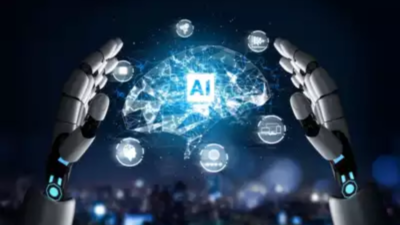- News
- Technology News
- Times Techies News
- A framework to ensure AI is used for social good
Trending
A framework to ensure AI is used for social good
Over the past few years, we have written about the State of Science report that 3M – the company best known for Post-it sticky notes, Scotch-Brite scrubbing products and car care solutions – comes out annually with. The report was an initiative of Jayshree Seth, who launched it soon after she was appointed as the company’s first ever chief science advocate in 2018.
Part of the focus of the 2024 State of Science Insights survey was on AI. It found that 77% of respondents believe AI will change the world as we know it; an equal percentage also believe that AI needs to be heavily regulated due to its revolutionary potential.
So, what can be a framework that ensures AI is not misused, and is used for solving big problems like human health and health of the planet? Since the report, Jayshree has been reviewing relevant research and literature on addressing the ethical aspects of AI. Based on this, she has developed a framework that she calls CHAMPS, emphasising character, humanity, work, morality, principles, and responsibility. They are in some ways, she says, an inversion of Gandhi’s seven social sins articulated a century ago: “Wealth without work. Pleasure without conscience. Knowledge without character. Commerce without morality. Science without humanity. Religion without sacrifice. Politics without principle.”
Here’s what she says about each of these:
● Humanity, human rights and human values must be at the forefront of AI development to safeguard against potential abuses. As AI becomes more advanced, there are concerns about privacy infringement, job displacement, and even existential risks to humanity. Prioritising human rights ensures that AI serves to enhance rather than diminish human dignity and wellbeing.
● Actual work and dignity of labour emphasise the dignity and necessity of engaging in meaningful, tangible work. In the context of AI development, this principle underscores the importance of ensuring that economic gains are tied to genuine effort and contribution, rather than merely exploiting digital systems for profit. This principle also encourages the development of AI technologies that support and enhance human labour rather than replace it, preserving the dignity and purpose that come from meaningful work.
● Morality and mindfulness in AI development involve careful consideration of the broader implications of these technologies. AI developers must be mindful of potential unintended consequences and strive to create systems that align with human values and moral frameworks. This requires ongoing reflection and adjustment as AI capabilities evolve.
● Principles and purpose guide the overall direction of AI development. Having clear, ethical principles and a well-defined purpose helps ensure that AI is developed to benefit humanity rather than for narrow commercial or political interests. This includes principles such as fairness, accountability, and transparency in AI systems.
● Sacrifice and social responsibility acknowledge that responsible AI development may sometimes require foregoing short-term gains for long-term societal benefits. Developers and companies may need to sacrifice potential profits or competitive advantages to ensure AI is developed safely and ethically. This also involves taking responsibility for the societal impacts of AI technologies.
End of Article
Latest Mobiles
FOLLOW US ON SOCIAL MEDIA
Hot Picks
TOP TRENDING
Explore Every Corner
Across The Globe











